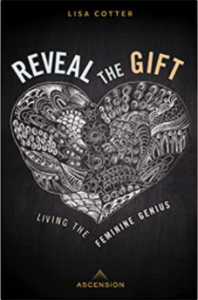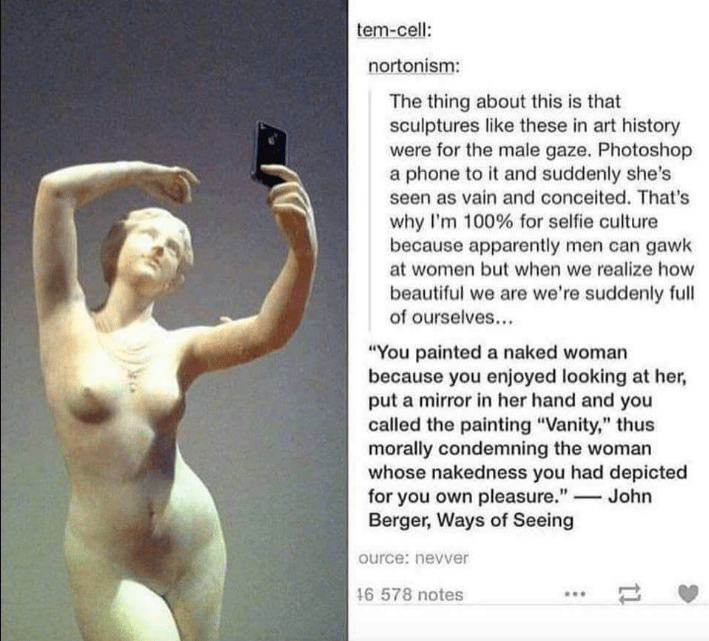Perhaps you are interested in the topic of femininity: what it means, why it’s important, what the Catholic church teaches about it. You’ve heard of Stephanie Gordon’s new book on the topic, Ask Your Husband, and you see that it’s getting (mostly) glowing reviews on Amazon.

But then you see that some of the more granular and scholarly reviews, like this one and this one, say that, while book claims to teach a boldly orthodox Catholic view on femininity, it actually misunderstands, distorts, and misrepresents Church teaching. And the book’s publisher, TAN, says it has submitted Ask Your Husband to a diocesan censor for review after publication, “to ensure that the content is in line with the faith,” but has not yet heard back from the censor.
It’s an important topic, for sure. But maybe there are better books to read.
What shall we read instead? I asked several well-read Catholic women for recommendations for a new feature I’m calling “Read This, Not That.”
Here’s what they suggested:
DANIELLE BEAN

Danielle is a writer, speaker, podcaster, and retreat leader, and the author of several books.
Danielle recommends:
The Church and the Culture War by Joyce Little

Essays on Woman by Edith Stein

SUSANNA SPENCER

Susanna Spencer has a Masters in theology from the Franciscan University of Steubenville, is a writer and the theological editor for Blessed is She, a regular contributor to the National Catholic Register, and is a co-author of the children’s devotional book, Rise Up: Shining in Virtue. She lives with her philosophy professor husband and four children in St. Paul, Minnesota.
Susanna recommends:
A Call to a Deeper Love: The Family Correspondence of the Parents of Saint Thérèse of the Child Jesus by Saints Zélie and Louis Martin

“This book of letters of canonized saints shows what a holy complementary marriage looks out lived out, with both working together to support the family through St. Zélie’s lace making business and the collaborative efforts they gave to help each other and their children grow in holiness.”
The Privilege of Being a Woman by Alice von Hildebrand

“The brilliant late Alice von Hildebrand (1923-2022) beautifully describes true complementarity of men and women, showing how it is a result of the curses of the Fall than some individual men have devalued women. She shows how women can both have equal dignity but also live out their call to live as full women of faith.”
A Severe Mercy by Sheldon Vanauken

“This book shows the importance of men and women treating each other as equals and working hard to maintain their love for each other. It shows the couples growth into faith in Christianity and the tension of giving themselves entirely to God but still to each other.”
Middlemarch by George Elliot

“Novels are great for understanding hard to grasp ideas about life. Middlemarch is classic tome which demonstrates in narrative form ways marriages can be lived out both poorly and well.”
ABIGAIL FAVALE

Abigail Favale is a writer and academic. She is the author of Into the Deep: An Unlikely Catholic Conversion and The Genesis of Gender.
Abigail’s recommendations:
“For a more general resource that touches on a range of topics related to women and Catholicism, watch this free video series: Cultivating Catholic Feminism.

“This series responds to JPII’s call for a ‘new feminism’ and articulates what feminism could look like if truly and authentically Catholic. Full disclosure: I wrote the scripts, but the beautiful production quality and aesthetic is all the brainchild of Corynne Staresinc, founder of The Catholic Woman.”
“If you feel like reading—choose Edith Stein’s Essays on Woman.

“Edith Stein (a.k.a St. Theresa Benedicta of the Cross) is a brilliant philosopher and a saint, and her writings on woman influenced JPII’s development of his theology of the body. Her take on woman and marriage is far more sophisticated and theologically rich than Gordon’s, while also remaining faithful to scripture and tradition.”
“Another book that comes at the question of woman from a totally different angle is The Eternal Woman, by Gertrud von le Fort.

“This book blew my mind when I first read it as a new convert. It is small but packed with rich spiritual insight, describing the beauty of the sacramental significance of woman—something that is unique to Catholicism, and completely overlooked in Gordon’s book.”
RACHEL LU

Rachel Lu is an Associate Editor at Law & Liberty, and a Contributing Writer at America Magazine. She lives with her husband and five sons in St Paul, MN.
Rachel’s recommendations:
“For a dignified, uplifting discussion of men and women and marriage, I like to browse Dietrich von Hildebrand’s Marriage: The Mystery of Faithful Love.

“Hildebrand is a personalist philosopher, not overflowing with practical advice, but the book has many insights to help us think about the complementarity of man and woman, and the sense in which we are meant for one another.”
“My Ántonia, by Willa Cather, offers an inspiring portrayal of maternal strength and honor, lived out on the American plains.

“We only see Antonia as a mother at the end of the book, but her fundamentally maternal character is evident throughout, and it is affirming to me to enjoy a book that is actually focused on the character of an admirable matron, and in showing how a girl can mature into that kind of woman. (Too often literary mothers are flat and uninteresting, mainly serving as support staff for more dynamic characters.)”
“St. Edith Stein’s Essays on Woman is full of rich material for reflecting on the nature of womanhood, and what it means to live as a rational being in a body made for childbearing.

“I’ll give advance warning that this is some heady philosophical stuff! You might not want to read it on a beach. It’s a treat though to see this topic addressed by a woman, who is also both a saint and a first-rate thinker.”
KATIE PREJEAN MCGRADY
Katie Prejean McGrady is an award winning author, speaker, and host of The Katie McGrady Show on The Catholic Channel on Sirius XM. She writes for Aleteia, Blessed is She, Catholic News Service, and hosts the Ave Explores podcast from Ave Maria Press. She lives in Louisiana with her husband and daughters.
Katie recommends:
Three Secrets to Holiness in Marriage: A 33-Day Self-Guided Retreat for Catholic Couples by Dan and Amber DeMatte

“Found it to be accessible, not overly hard to implement, and relatable”


“A much better reflection on the feminine genius [than Ask Your Husband]”
Our Not-Quite-Holy Family: A Practical Guide for Catholic Parents by Marc and Melanie Hart

LEAH LIBRESCO SARGEANT

Leah Libresco Sargeant is the author of Arriving at Amen and Building the Benedict Option. Her substack is Other Feminisms.
Leah recommends:

“My husband and I read this together, out loud, over the course of our engagement. It’s an excellent, accessible work on marriage and thus on men and women. And it’s always focused on how marriage is directed outward and upward to God—which helps avoid a certain kind of inward idolatry.”

“Favale is a convert to Catholicism who was formed first by fundamentalism, then by secular feminism. That means she’s particularly good at discussion where those cultures have ahold of a partial truth, but fall short of the fullness of truth to be found in the Church.”

“This one is the densest read, but the future Saint JPII is answering the hard question: We know marriage means giving up liberty in order to make a full gift of self. How do we make sure we are offering ourselves rightly? What makes marriage fruitful rather than self-erasure? (If I ask my husband, he would also recommend Wojtyla’s exploration of these questions in the play The Jeweler’s Shop, which is much shorter but differently challenging to read).”

“This is our current family spiritual reading, so we’re not finished yet, but I appreciate having the example of many different saints, so we can remember that God calls everyone to sanctity but that there is more than one way to live out that command.”

“Why not explore these questions for more than 1000 pages in 14th century Norway? Hear me out, you guys. Undset makes an epic of one woman’s life to allow the small movements of the heart and the actions of grace to have the weight of a sprawling battle. My husband and I read it alongside a group of friends online, and it made for some of our most fruitful conversations about marriage, self-discipline, and self-gift.”


















